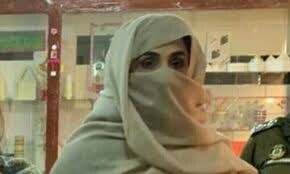MINGORA: During the three years of militancy, when there was no ray of hope for the traumatised widows and orphan girls in Swat, Shama Khalilur Rehman, a young entrepreneur, came forward to not only rehabilitate them but also help them to stand on their own feet.
She opened a vocational centre in Swat in 2009 and motivated the needy women to learn skills and earn their livelihood in a respectful way.
She said that she set up the centre as she could not see the suffering of the poor women, whose spouses were killed during the militancy. “I decided to provide a platform to them where they could share their burden with others and learn skills,” Ms Rehman told Dawn.
She said that she was successful in imparting training to about 2,000 women. The Shama Vocational Centre not only trained the women but also linked them with the market to get better rates for their artifacts.
About 2,000 women have received training at Shama Vocational Centre so far
“The major problem of the women here is that they do not have market linkages due to which their products are bought at very low rates. I linked them with bigger markets of the country like Lahore, Gujranwala and Karachi etc,” Ms Rehman said.
The centre has also revived the original Swati stitch, which is in high demand in the international market for its uniqueness. The women learn embroidery, sewing and knitting besides doing beautician course at the centre. The trained women are happy as their income is ten times higher now.
Arbania, a mother of two, whose husband has been missing for the last seven years, said that she had a hard time initially as she did not know how to earn livelihood for her family.
“When I came to know about the vocational centre, I came here and learnt stitching. Now they give me work and also sell the items in the market at a higher price. I can easily earn livelihood for my children and fulfil other needs,” she said.
Sardar Begum, a mother of four, said that life was hard before she was connected with the centre as she could earn Rs2,000 to Rs3,000 a month. Now she can earn Rs10,000 to Rs12,000 easily in a month as she is connected with the centre. Some of the women have started teaching in the centre after completing their vocational courses.
“My sister and I live alone as our parents are dead. I had learnt the stitching but it was not of professional standard. So I refined my work here and now I have been teaching and also stitch in spare time to earn more money,” said Amna, a trainer at the centre.
The centre also supports young girls and motivates them to get education. “I learnt stitching skill in six months. I earn Rs5,000 to Rs6,000 a month and also study in a college,” Mehnaz Bibi, a BSc student, told Dawn.
Ms Rehman learnt stitching, embroidery and knitting skills from her physically challenged mother, who, despite her husband’s illness, did not lose heart and taught her daughter.
“I dreamt of educating my children because I used to see girls going to colleges and schools so I was determined to send all my children to schools for which I started tailoring and knitting,” Jehan Pari, the mother of Ms Rehman, told Dawn. She said that after a hard work of 15 years, she managed to educate her children. Ms Rehman said that she didn’t receive any support from the government for her centre. “The artisans produce high standard stuff and need an international market linkage which is not possible without the help of government,” she added.
Ms Rehman appealed to the government and other relevant organisations to enable them to access the international market so that the widows and orphan girls could get better income for their labour. MNA Ayesha Syed, who visited the centre, said that she would raise voice for the women artisans on the floor of assembly and would also try to link the centre with the embassies of different countries. “I strongly believe that the artisans will soon have international linkages as their work is of high standard,” she said.
Published in Dawn, September 2nd, 2015
On a mobile phone? Get the Dawn Mobile App: Apple Store | Google Play


















































